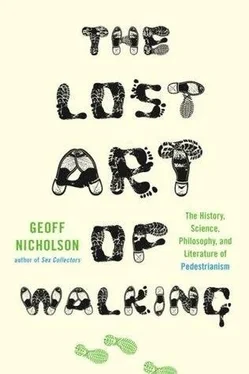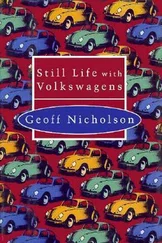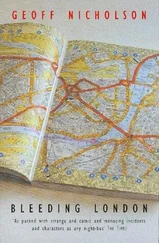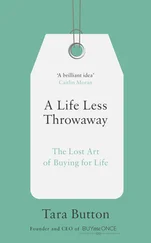If it had been up to me, then or now, I’d simply have lied to the man, said that I hadn’t seen the sign, apologized, and retreated, but my dad didn’t quite do that. He didn’t deny that he’d read the sign but, he said, surely no rational person, however protective he felt toward his land, could possibly object to a man such as my dad and his young son walking through their woods on a Sunday morning.
My dad was so reasonable and so utterly mistaken that the man, though still angry, was taken aback. He’d been ready for a confrontation, raised voices, an escalating argument, but my father’s suggestion that he might have put up the sign without really meaning it left him flabbergasted. The best he could do was say, ‘How would you like it if I came and rode my horse through your garden?’
My father appeared to be giving the matter serious thought, then said, ‘Well, I take your point’.
I didn’t take any such point. Something was stirring in my bosom. Let him bring his horse to our garden, I thought. There’d just about be enough room for the horse to stand up, and his presence would surely have caused a gathering of local toughs and hooligans who, in my imagination at least, would express their class hatred, abuse the man, and probably steal his horse.
No son likes to see his father defeated, and this was certainly an argument my father couldn’t have won, but I thought he’d gained a sort of victory by refusing to argue at all. We turned and walked back the way we’d come, rather slowly and overcasually. I took some comfort in thinking that even though we’d been told off, we had at least successfully trespassed on the pompous ass’s land. We’d also succeeded in making him hugely angry and that had its satisfactions. My father wasn’t consoled by any of this, and he continued to be genuinely amazed that anyone could be so utterly unreasonable as not to want him to walk on their land.
♦
When I was in my early teens I was one of a small group of boys from my grammar school who met up in the center of Sheffield one evening to see our first adult film, telling our parents that we were going to one another’s houses. Adult films weren’t then what they are now, and the one we’d chosen to see was The Graduate . I’m amazed now to discover that the movie was released in 1967, and I’m sure we saw it first-run, but that would mean we were all about fourteen years old, which seems unlikely. No doubt we felt much older, and certainly tried to look it as we bought our tickets at the box office, which we did without any trouble.
The Graduate was far too sophisticated for our boyish tastes and we were severely disappointed. It also finished surprisingly early and we all went our separate ways, but going straight home and arriving back so soon would have made my parents suspicious. So I dawdled, eventually caught a bus back to the Longley Estate, and got off a couple of stops too early so I could walk part of the way home and kill more time. Wandering the streets at night seemed to be a safe thing for a boy to do, largely because there was nobody else on the streets.
The houses were small and tightly packed together, and there were lights on inside, and I remember I could hear televisions playing through the walls. There was a sense of quiet order. The whole area seemed to be dormant, and my presence felt sneaky and intrusive, like staring at someone while they’re asleep.
I walked all around what I considered to be ‘my’ neighborhood. I walked along all the streets that I knew, past the school, the park, and the few local shops and between the four patches of open grass in front of them known, incomprehensibly, as ‘the Plantation’, and along one or two streets that I didn’t know very well at all. I felt thoroughly detached, an unseen and unknown outsider. You might have thought there was something voyeuristic about it, although there was nothing to see.
Ultimately, however, it was all very dull. I had the sense that nothing interesting had ever happened in these streets, and that nothing much ever would. I walked for what seemed a very long time until I felt I’d exhausted all the possibilities of the neighborhood. I went home. As I walked into the house, after having had what I would later come to think of as an important moment, and having thought I’d walked for a good long time, my mother simply said, ‘You’re back early’.
Only much later did I read this passage in Jack Kerouac’s Dharma Bums :
‘Walk some night on a suburban street and pass house after house on both sides of the same street each with the lamplight of the living room, shining golden, and inside the little blue square of the television, each living family riveting its attention on probably one show — nobody talking — silence in the yards; dogs barking at you because you pass on human feet instead of wheels’.
I had seen no little blue television squares on my walk — this was a neighborhood where people kept their curtains tightly closed at night — but I took his point.
♦
When, years after the event, I tried to tell my friend Steve about the way I’d felt that night, he joked that I was lucky not to have been arrested, but that was never likely to be a problem. The streets were as free of police as they were of criminals.
Steve was, and is, my oldest friend, and has been since we were both six years old. My first memories of him were as the smiling little kid who’d fallen in the schoolyard and broken his arm. Then later, the very day the cast came off, he’d fallen and broken it again. Now that both my parents were dead, Steve was my only remaining contact with Sheffield.
He was also a reminder of who and what I might have been. He’d been smart enough to go to college for four years and get a degree, but then he’d come right back, got a job in local government, married, and had two kids. He was a smart man in lots of ways, witty, thoughtful, a very talented guitar player, and yet there was something frustrated about him, and that frustration seemed to come from never having got out of the city he was born in.
Steve was also the man with whom I’d got my criminal record. We’d been hitchhiking from Sheffield to London, while at college, had made some bad decisions, and found ourselves stranded on the motorway, the English equivalent of a freeway, where walking is strictly forbidden. We walked gingerly, knowing we shouldn’t be there, but were spotted by motorway police, picked up, and eventually each charged with being ‘a pedestrian on a motorway’. As far as either of us can tell this hasn’t blighted our subsequent lives.
♦
I decided to go back to Sheffield for a long weekend of walking around the places of my youth, and it was natural that I stay with Steve and his wife, Julia. Natural, too, that I should invite Steve to come walking with me. He reckoned he could only do some of it.
♦
These days he was suffering with his back, which sometimes made walking too difficult and painful. He said he’d do what he could. On that basis he didn’t come with me when I did my first walk around Hillsborough.
Saturday afternoons, as I was growing up, were always spent at my grandmother’s house. My mother and I were deposited there while my father went off and did fatherly things. I didn’t much want to be there, trapped in my grandmother’s living room while she and my mother discussed the latest family scandals, and eventually a time came when I was eleven years old or so and it was reckoned that even though I was too young to be left alone in my parents’ house, I was old enough to be allowed to wander the streets of Hillsborough.
My mother always told me to go to the park, but the park seemed to offer less than the scruffy but busy shops in the neighborhood. There was a single shopping street, but it changed its name halfway along, from Langsett Road to Middlewood Road, running from the park at one end to a former barracks at the other.
Читать дальше












